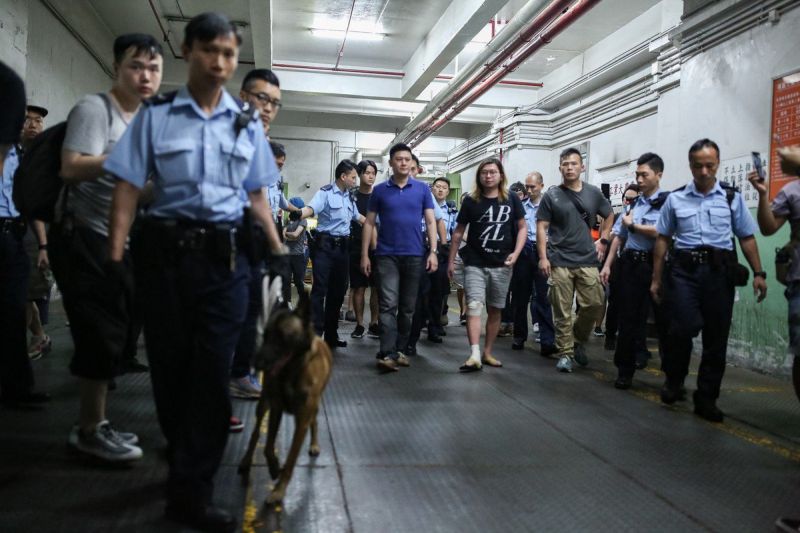Civic Party lawmakers have questioned the government’s tight requirements over music venues in industrial buildings, following a raid at prominent independent live house Hidden Agenda on Sunday.
Seven people were arrested, including four foreign performers who were taken away by the Immigration Department for allegedly lacking work visas.
The venue’s current location is its fourth, after its previous incarnations received multiple warnings from the Lands Department for violations of its land lease as an industrial property.

Lawmaker Jeremy Tam Man-ho questioned whether the raid fit with the government’s policy to develop the industrial buildings in the Kowloon East area, his constituency. He said rents in the area had been rising following the announcement of the policy, which was in turn harmful to the local community.
“Industrial buildings are the best locations to do such kind of music [activity] – if they can’t do it there, what can they do?” he said.
Aside from the raid by the Immigration Department and the police, the previous raids also involved the Lands Department, Fire Services Department, and the Food and Environmental Hygiene Department.
“It seems they want to employ all methods to kill Hidden Agenda,” he said.
The latest venue opened at the end of last year following a HK$500,000 public fundraiser, officially as a takeaway food stall.

Licences and visas
Lawmaker Tanya Chan Suk-chong questioned the need for a public entertainment licence for a live house. The licence is required for any entertainment event with public involvement, even if it was free admission.
She said only 134 licences have been awarded by the government. Of which, only three were live houses, including the HMV kafé in Causeway Bay, Hard Rock Café in Central, and the renovated heritage Mei Ho House in Shek Kip Mei.
“We will have our party’s anniversary celebration soon and we have entertainment, do we need a public entertainment licence as well?” she said. “The application involves many departments, such as Fires Services, Lands, Home Affairs – it is very complicated.”

Cultural exchange
Speaking on the requirement of work visas, Chan cited an incident last year whereby a Japanese karate master was taken away by the Immigration Department for allegedly working without a visa. The master was invited by the Karatedo Federation of Hong Kong to offer a five-day training course at the Hong Kong Sports Institute.
“For the four overseas performers or other artists, are they doing an exchange in Hong Kong, or are they employed by different means? It’s hard to tell,” she said.
“The process to apply for a work visa is also very difficult. You have to prove there is no such talent in Hong Kong, you also have to provide the working location, the background of the company and the financial status and all – is this helping or blocking Hong Kong’s cultural exchange?”
Jeremy Tam said he understood that similar live houses have tried to apply for work visas, but the Immigration Department has been tightening its requirements and eventually not approving any at all.
Under the Immigration Ordinance, breaching conditions of stay in Hong Kong carries a maximum fine of HK$50,000 and two years’ imprisonment. An employer who unlawfully employs an immigrant faces a maximum fine of HK$350,000 and three years behind bars.

No respect
Chan, also a barrister, will act as a legal representative for the four performers.
The three others were arrested by the police, including venue founder Hui Chung-wo, another venue staffer, and a member of the audience.
Tam said a duty officer at the Kwun Tong police station were disrespectful to Hui verbally and they had arguments before Hui was allowed to use his phone.
“The duty officer said ‘You guys are famous… I know who you are, you guys did this and that’ – I did not expect the officer would say that even in the presence of a lawmaker,” Tam said. “The police cannot label people like that.”
